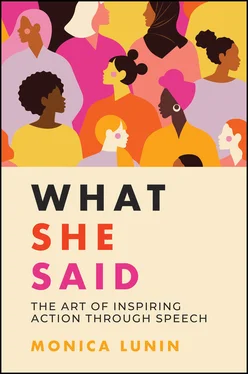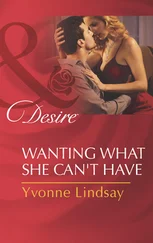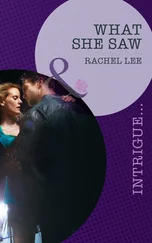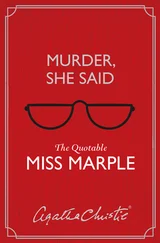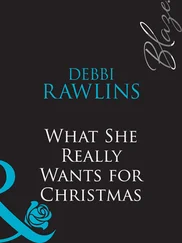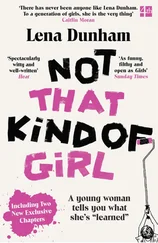Monica Lunin - What She Said
Здесь есть возможность читать онлайн «Monica Lunin - What She Said» — ознакомительный отрывок электронной книги совершенно бесплатно, а после прочтения отрывка купить полную версию. В некоторых случаях можно слушать аудио, скачать через торрент в формате fb2 и присутствует краткое содержание. Жанр: unrecognised, на английском языке. Описание произведения, (предисловие) а так же отзывы посетителей доступны на портале библиотеки ЛибКат.
- Название:What She Said
- Автор:
- Жанр:
- Год:неизвестен
- ISBN:нет данных
- Рейтинг книги:4 / 5. Голосов: 1
-
Избранное:Добавить в избранное
- Отзывы:
-
Ваша оценка:
- 80
- 1
- 2
- 3
- 4
- 5
What She Said: краткое содержание, описание и аннотация
Предлагаем к чтению аннотацию, описание, краткое содержание или предисловие (зависит от того, что написал сам автор книги «What She Said»). Если вы не нашли необходимую информацию о книге — напишите в комментариях, мы постараемся отыскать её.
What She Said
What She Said
What She Said — читать онлайн ознакомительный отрывок
Ниже представлен текст книги, разбитый по страницам. Система сохранения места последней прочитанной страницы, позволяет с удобством читать онлайн бесплатно книгу «What She Said», без необходимости каждый раз заново искать на чём Вы остановились. Поставьте закладку, и сможете в любой момент перейти на страницу, на которой закончили чтение.
Интервал:
Закладка:
Where: West Germany
Audience: Television interview
Hannah Arendt was a German-born Jewish political theorist with first-hand experience of anti-semitism and the Nazi regime, from before and during World War II. Fleeing Germany in 1933 (the year Adolf Hitler came to power), she settled first in Paris and then in New York. During her time in the United States, she continued to develop her philosophical theories, with an interest in totalitarianism, war and revolution. Her work helps sharpen the perspective of the concept of evil, bringing it down to the complicity that exists at an individual level. As an example of this, she once said in an interview with the New Yorker , ‘It is well known that the most radical revolutionary will become a conservative the day after the revolution.'
In 1961 Hannah Arendt was commissioned by the New Yorker magazine to report on the trial in Jerusalem of Adolf Eichmann. Eichmann was a Nazi official who, among other things, was responsible for the isolation of Jews into ghettos in the major cities of Germany and elsewhere in Europe.
Arendt's articles later culminated in the book Eichmann in Jerusalem: A Report on the Banality of Evil . This publication sparked a wave of protest, particularly with regards to her portrayal of Eichmann as a dull, unimaginative automaton — a ‘clown' — rather than the evil monster the world expected. Arendt also questioned the actions of some Jewish leaders associated with the Jewish Councils, arguing these leaders cooperated perhaps too readily with Eichmann and, without this cooperation, more Jewish lives would have been saved. These views attracted condemnation from many of her peers and even some of her friends. Arendt's views were sometimes misunderstood as providing a defence of the Nazi regime. Her theories illuminate the mechanics of evil regimes and the role of the individual in supporting the enabling infrastructure.
Amid the controversy, Arendt spoke out repeatedly in defence of her intellectual argument.
On 28 October 1964, she appeared in a televised conversation with German journalist Günter Gaus, which was broadcast in West Germany. This interview was conducted in Arendt's native tongue and broadcast very early in the days of television and before the talk show format really existed. The audience were accustomed to the portrait and Q&A style of interview used by Gaus from previous shows featuring political figures as well as artists and philosophers.
Not exactly a speech, the interview does cover a lot of ground and Arendt presents her arguments clearly. When Gaus turns to the question of the Eichmann matter, Arendt responds with force and reason. Evident in this interview is her characteristic commitment to uncovering the truth, her deference to logos over pathos — and her endless chain-smoking habit.
WHAT SHE SAID
Gaus: Miss Arendt, your book on the trial of Eichmann in Jerusalem was published this fall in the Federal Republic. Since its publication in America, your book has been very heatedly discussed. From the Jewish side, especially, objections have been raised which you say are partly based on misunderstandings and partly on an intentional political campaign. Above all, people were offended by the question you raised about the extent to which Jews are to blame for their passive acceptance of the German mass murders, or to what extent the collaboration of certain Jewish councils almost constitutes a kind of guilt of their own. In any case, for a portrait of Hannah Arendt, so to speak, a number of questions come out of this book. If I may begin with them: Is the criticism that your book is lacking in love for the Jewish people painful to you?
Arendt: First of all, I must, in all friendliness, state that you yourself have become a victim of this campaign. Nowhere in my book did I reproach the Jewish people with nonresistance. Someone else did that in the Eichmann trial, namely, Mr. Haussner of the Israeli public prosecutor’s office. I called such questions directed to the witnesses in Jerusalem both foolish and cruel.
Gaus: I have read the book. I know that. But some of the criticisms made of you are based on the tone in which many passages are written.
Arendt: Well, that is another matter. What can I say? Besides, I don’t want to say anything. If people think that one can only write about these things in a solemn tone of voice … Look, there are people who take it amiss — and I can understand that in a sense — that, for instance, I can still laugh. But I was really of the opinion that Eichmann was a buffoon. I’ll tell you this: I read the transcript of his police investigation, thirty-six hundred pages, read it, and read it very carefully, and I do not know how many times I laughed — laughed out loud! People took this reaction in a bad way. I cannot do anything about that. But I know one thing: three minutes before certain death, I probably still would laugh. And that, they say, is the tone of voice. That the tone of voice is predominantly ironic is completely true. The tone of voice in this case is really the person. When people reproach me with accusing the Jewish people, that is a malignant lie and propaganda and nothing else. The tone of voice, however, is an objection against me personally. And I cannot do anything about that.
Gaus: You are prepared to bear that?
Arendt: Yes, willingly. What is one to do? I cannot say to people: You misunderstand me, and in truth this or that is going on in my heart. That’s ridiculous.
… Gaus: Miss Arendt, do you feel that it is your duty to publish what you learn through political-philosophical speculation or sociological analysis? Or are there reasons to be silent about something you know?
Arendt: Yes, that is a very difficult problem. It is at bottom the sole question that interested me in the whole controversy over the Eichmann book. But it is a question that never arose unless I broached it. It is the only serious question — everything else is pure propaganda soup. So, fiat veritas, et pereat mundus [let truth be told though the world may perish]?d But the Eichmann book did not de facto touch upon such things. The book really does not jeopardize anybody’s legitimate interests. It was only thought to do so.
Gaus: You must leave the question of what is legitimate open to discussion.
Arendt: Yes, that is true. You are right. The question of what is legitimate is still open to discussion. I probably mean by ‘legitimate’ something different from what the Jewish organizations mean. But let us assume that real interests, which even I recognize, were at stake.
Gaus: Might one then be silent about the truth?
Arendt: Might I have been? Yes! To be sure, I might have written it … But look here, someone asked me, if I had anticipated one thing or another, wouldn’t I have written the Eichmann book differently? I answered: No. I would have confronted the alternative: to write or not to write. Because one can also hold one’s tongue.
HOW SHE DID THAT
Be prepared to face the difficult questions
We all experience a strong temptation to sidestep the thorniest issues that are bound to create tension and ill will. The more difficult and challenging they are, the more likely we are to face criticism and rejection. But, as Hannah Arendt shows us, by tackling these issues and demonstrating tenacity and clear-headedness, the good outweighs the bad. The benefit of advancing human understanding is worth the risks of being misunderstood, in her view.
Building on the philosophical views of her contemporaries, and adding her unique perspective as a Jew and a woman, she illuminates a side of the situation not previously considered. This is a voice the world needed to hear and still does.
Читать дальшеИнтервал:
Закладка:
Похожие книги на «What She Said»
Представляем Вашему вниманию похожие книги на «What She Said» списком для выбора. Мы отобрали схожую по названию и смыслу литературу в надежде предоставить читателям больше вариантов отыскать новые, интересные, ещё непрочитанные произведения.
Обсуждение, отзывы о книге «What She Said» и просто собственные мнения читателей. Оставьте ваши комментарии, напишите, что Вы думаете о произведении, его смысле или главных героях. Укажите что конкретно понравилось, а что нет, и почему Вы так считаете.
